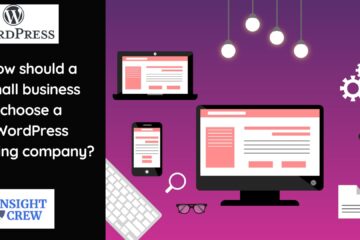Do you wish to improve the speed of your website? We have compiled a thorough guide to WordPress speed optimisation. You’ll have access to some useful information, including the reasons why speed matters, potential causes of your WordPress site’s slowness, and doable solutions that you can implement right away to speed up your website. You might have recently switched from another content management system (CMS), like Squarespace, to WordPress, and you want to learn more about how to make your website unique.
Remember that consumers are spoiled for choice. Because of this, search engines want to ensure that they display only the best results to their users when ranking them. Because it can make the difference between appearing on Google’s first page and the tenth, your site’s speed and performance are crucial.
We’ll examine some best practices for WordPress performance optimisation in this post and provide answers to both queries: What are the best ways to increase the speed of a WordPress website? And what’s causing your WordPress website to lag? Keep in mind that one of the most important WordPress problems can be resolved by increasing performance.
Why Is Page Speed Important?
If you want to know how well your WordPress website is performing, you must assess the page speed. Nobody enjoys a slow website. The Google Page Experience update will benefit you if you focus on providing users with a faster and safer experience. There’s more.
- SEO is impacted by website speed. According to Google, one of the key signals that determines your page’s ranking is how quickly it loads. Google wants to know if a visitor will be satisfied with their experience if they are directed to you. The Core Web Vitals are a ranking factor used by Google. The loading speed is going to be more important than ever. The Core Web Vitals are a set of specific factors that Google considers important in a webpage’s overall user experience. Largest Contentful Paint, Cumulative Layout Shift, and Interaction to Next Paint are the three metrics.
- Sites that load quickly are easier to crawl. Furthermore, slow pages discourage web crawlers, which have limited resources, and may deprioritise your site.
- Conversions are impacted by website performance. From the standpoint of user experience, optimising your website’s loading time is also important because a slow site isn’t acceptable these days. The amount of time you have to hold users’ attention is extremely limited. People are likely to click away to something else if there is any kind of delay. Making sure your page loads as quickly as possible is an essential component of any online strategy, regardless of the size, type, or nature of your company. A user is more likely to complete the intended action on a webpage if it loads faster. And we’re all in agreement!
- Website speed lowers the bounce rate. Since your competitors are only a click away, one of your marketing objectives should always be to outperform them. All the work you put into design and development will be wasted if your website loads slowly, even if you have the best content and a fantastic product. Stay away from that website!
As you can see, speed is important, so we advise you to test the speed of your website frequently. The following are the best tools for measuring your Core Web Vitals and auditing your WordPress performance:
PageSpeed Insights
Chrome UX Report
Search Console
Chrome DevTools
Lighthouse
Ways to Make Your WordPress Website Faster
To speed up the loading of your WordPress website, you can implement some performance optimisation best practices right now. Here is our comprehensive list of doable suggestions, arranged from simple to complex.
- Select a robust hosting provider:
The performance of your website is greatly influenced by your WordPress hosting service. What distinguishes a quality hosting company? A quality hosting company goes above and beyond to optimise your website for speed and offers excellent customer service. A few different kinds of hosting are available:
With shared hosting, a large number of people share the server’s resources. Your website might be affected if one of them experiences a spike in traffic. You must exercise caution.
Dedicated hosting: Under this arrangement, a hosting company rents to a single customer, you, a single server with all of its resources. You can do anything you want with your server, and it will improve loading times.
With managed WordPress hosting, you can run your WordPress website with the best server configurations. These businesses are experts in WordPress and provide features specifically tailored to it, like security settings, automatic WordPress updates, and much more.
- Select the appropriate theme: pick one that is speed-optimised
The fact that WordPress offers an almost limitless selection of themes is one of its best features. Consider more than just functionality and appearance when choosing the one you’ll use. Selecting a theme that is effective in terms of speed optimisation is also crucial.
✅ See our guide for instructions on how to test (and select) a fast theme.
✅ Take your time and conduct thorough research before deciding, because it can resolve many issues you may encounter later.
A list of WordPress themes that are the fastest:
- Change to a theme that offers features for performance optimisation.
- Check for performance problems with the installed theme using the Query Monitor plugin.
- Avoid using a header slider
The performance of your website will be severely harmed by a slider. Despite the fact that many websites use them, this is one of the things that will negatively affect speed the most.
- Get rid of oversized plugins
Installing numerous plugins for different purposes on your website may seem alluring, but be cautious of the effects it may have. It might make sense to look for more effective alternatives or simply remove any plugins that are running a lot of extra scripts and are excessively bloated. Here, simplicity usually prevails.
✅ Before and following plugin activation, test the speed of your website. To learn how to measure the performance of your WordPress website using Pingdom, Google Page Insights, or GTMetrix, see our guide.
✅ Get rid of any plugins that aren’t being used to free up database space and prevent your website from becoming vulnerable.
To determine which installed plugins are causing performance problems, use the Query Monitor plugin.
- Provide appropriate services with large media files.
Uploading your video or audio files to YouTube, Viméo, or SoundCloud is far more efficient than using the WordPress backend because these platforms are better equipped to manage the bandwidth needs. Then, instead of rendering that digital asset, your WordPress website can point to it, making your entire site much faster.
Make use of YouTube’s “LazyLoad” feature. Select “Use the preview image in place of the YouTube iframe.” This will speed up the loading of your page.
You can use the built-in video feature in the WordPress Editor (Gutenberg) to embed a video in WordPress. Your video will automatically embed if you just copy and paste its URL into your post:

- Utilise a Content Distribution Network (CDN).
It makes a lot of sense to use a CDN to host your website closer to the end user if your target audience is dispersed globally. A CDN establishes a global network of servers that store static files, allowing for significantly faster loading times in various situations rather than having everything originate from a single server in one place.
Do I require a CDN? If your clients are located far from the server, you will require one. The loading of all the content, including images, JS and CSS files, videos, and products, may take some time. You should think about using a CDN if you intend to sell internationally or go multilingual.
- Update WordPress frequently:
The WordPress platform itself is always changing, and you should be taking advantage of the frequent updates that the team and community release to enhance the overall functionality. You can make sure that your website is always running the most recent version of WordPress by installing these updates when they become available.
- Restrict post-editing
Every published update or saved draft is tracked by the WordPress revisions system. If you need to recover an earlier version of your content, it’s useful. However, if your pages are not cached, making too many changes to posts can affect how quickly your WordPress website loads.
✅ Adding this bit of code to your wp-config.php file will help limit post revisions. We added “5” to indicate how many revisions we would like to make, but you are free to choose your number.
- Reduce database calls and optimise your WordPress database.
Your WordPress database will expand along with your website, and eventually, some of your data may become outdated. A faster loading speed will result from your database operating more efficiently if you can remove unnecessary information.
To optimise your database, you must first access PHPMyAdmin through your hosting provider. You can also perform some manual interventions there if you have a solid understanding of your database structures. We have compiled a list of alternative solutions for those who lack confidence.
Much of this optimisation will be done automatically by the WP Rocket plugin. The advantages include a fast setup time and an excellent user-intuitive interface. Posts, comments, transients, and database cleanup are all separated under the Database Tab:

Additional plugins for database optimisation include:
WP-Optimise (1 million+ users). Post revisions, old drafts, spam, trashed comments, expired temporary options, trackbacks, and pingbacks can all be cleaned up with WP-Optimise.
WordPress Sweep (over 100,000 users). By selecting “Sweep All” at the bottom, you can run all the tasks or review each setting.
- Make use of the most recent PHP version.
Your WordPress website will function more quickly with an updated PHP.
✅ Find out what version of PHP your host is using, and if it’s less than 7, ask him to upgrade.
✅ To find out what version of PHP you are using, install a plugin like Version Info.
Concluding
You should make every effort to maximise the speed at which your WordPress website loads. It’s one of those infrastructure elements that significantly influences who view and interpret your work.
Fortunately, you can achieve amazing results quickly by utilising some of these best practices.
WP Rocket is among the simplest tools for raising your PageSpeed Insights score. Never forget that your Core Web Vitals will improve if you address the most significant problems that Google has identified!
Your website will load faster than you ever could have dreamed with just a little awareness and a willingness to work with some fantastic tools!


